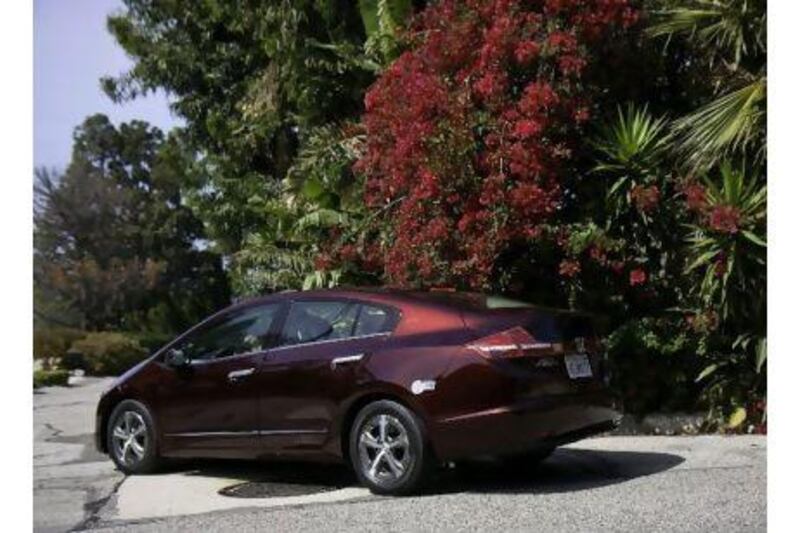The article in the Motoring section Charging ahead (April 16) reported electric batteries have managed to conquer the superior hydrogen fuel cell as a power source for cars. What went wrong is the same old gullible public buying into the same old snake oil being pitched since the 1970s, and the rush of dubious consultants and gurus to the clean tech party.
Even Silicon Valley has now given up, realising that clean tech would not be an Internet 2.0 (or 3.0) gold rush, after succeeding in reducing food supply by hyping ethanol as a fuel, with everyone now paying dearly (and unnecessarily).
Scientifically, creating hydrogen requires more energy than what it releases, making this process a nonsensical approach. Hydrogen derived from natural gas entails a 60 per cent loss, so will always be more expensive than straight-burning natural gas. According to Joseph Romm, former acting assistant secretary of the US Department of Energy, the US is still 30-50 years away from commercialisation.
Not much has changed: electric vehicles are lacking compared with hybrids, which in turn make little sense compared with natural gas based vehicles, a big hit already in emerging markets.
The US Energy Information Administration projects that by 2030, natural gas would be 25 per cent and other clean energy (nuclear, hydroelectric) 10 per cent of total world supply.
Now this is reality ignored at our own peril.
Athar Mian, Abu Dhabi
Praise for new Fujairah refinery
In reference to the front page business article Capital set to go ahead with $3bn refinery project (April 14), the timing and location for this refinery in Fujairah is perfect. The UAE will solve many problems by increasing refining capacity. Oil revenues will be used for this and for other similar projects in the UAE.
This is a very wise management of revenues.
Building a strong infrastructure for petro-chemicals in the country will also create more jobs related to the project.
Khalid Mohammed, Abu Dhabi
An entrepreneur's view of labour law
I refer to the news article of several months ago Employers criticise new labour regulations. I am an entrepreneur. I started a company in the UAE with all my life savings. I recruited people who did not have skill sets but invested in training them and polishing their skills. Every time I send them to training sessions and upgraded them, they would ask for a raise, actually threaten indirectly.
Now, they are getting approximately more than 10 times what they were earning back home, and their families and personal lifestyles have changed dramatically for the good. On a personal level, I have achieved some of my dreams, but monetarily I have not made much. Still, I feel satisfied that I am helping so many families. The people working for me always consult me about personal problems.
Now, with the new law, I am at a crossroads. As I invest in the well being of my employees, some of them are thankless and selfish to the core and threaten to leave. So the laws should protect both the employers and employees. Otherwise I must invest and keep looking for new talent at the same time.
Syed Akbar, Abu Dhabi
Knotty problem about language
The front page article Lessons in English endorsed by parents (April 11) reported that 80 per cent of parents surveyed in Abu Dhabi did not think teaching Arab children in English would undermine their national identity. The issue as I see it has little to do with national identity. I think relating the study of sciences in English to loss of national identity is silly.
The issue I'm more interested in is that children will understand the concepts better (mathematical and scientific) if they studied them in their mother tongue.
This is a finding confirmed by research. In the end we want Arab students to understand the concepts and really do well in that area - conceptual thinking, scientific thinking and mathematical spatial thinking - regardless of what language they do it in.
If the students are not doing well in maths and science taught in Arabic, having them study those subjects in English won't help either.
It is not a matter of what language but rather a question of how are we teaching and what depth of knowledge are we imparting?
Hanada Taha, Abu Dhabi
A tribute to boxer Manny Pacquiao
I refer to A bittersweet farewell to Mannyworld (April 12), the last in a four-part series describing the great Filipino boxer Manny Pacquiao's remarkable world. The author of the series, Chuck Culpepper, would do great justice if he would co-write Manny's autobiography. His words are compelling and stir up the imagination.
Jec Baliza, Dubai





